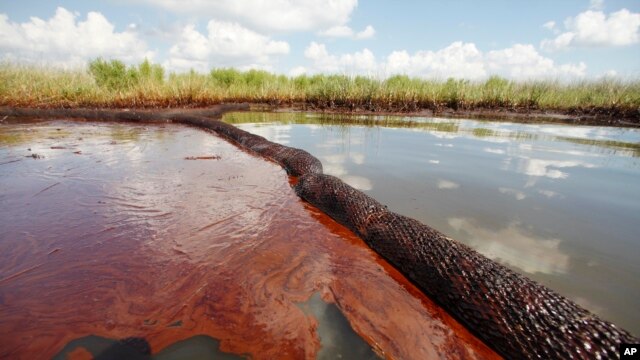ScienceRocks
Democrat all the way!
- Banned
- #1
Texas Barge Collision Spills Up To 168,000 Gallons Of Sticky, Gooey, Thick, Tarry Oil
Texas Barge Collision Spills Up To 168,000 Gallons Of 'Sticky, Gooey, Thick, Tarry' Oil | ThinkProgress
A barge carrying 924,000 gallons of thick marine shipping oil collided with a ship near the Texas City dike on Saturday afternoon, spilling up to 168,000 gallons and forcing closures on the waterway.
This is an extremely serious spill, Capt. Brian Penoyer of the U.S. Coast Guard told the Houston Chronicle. It is a persistent oil.
The barge was being towed from Texas City to Bolivar carrying a substance called RMG 380, a special bunker fuel oil often used in shipping that doesnt evaporate easily. As of 10 p.m. Saturday, the spill had not been contained and the Coast Guard was still investigating the collision. Thus far, Texas City Emergency Management said the dike and all parks on the water are closed until further notice and part of the Houston ship channel was closed to traffic, according to the Coast Guard.
The Coast Guard said officials were closely monitoring the spill area for health-threatening hydrogen sulfide and other dangerous gases that can be emitted by the spill, the Houston Chronicle reported. Dangerous concentrations of the gases have not been detected but two of the six crew members on the tug were treated for exposure to fumes, Texas City Homeland Security Director Bruce Clawson told the Chronicle. Exposure to RMG 380 may cause respiratory tract, eye and skin irritation and the vapor may contain hydrogen sulfide (H2S) gas which can be harmful or fatal if inhaled, according to the Material Safety Data Sheet.
Texas Barge Collision Spills Up To 168,000 Gallons Of 'Sticky, Gooey, Thick, Tarry' Oil | ThinkProgress




